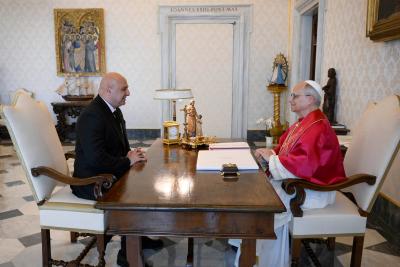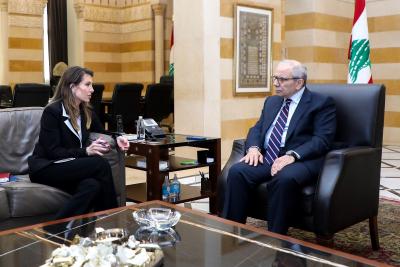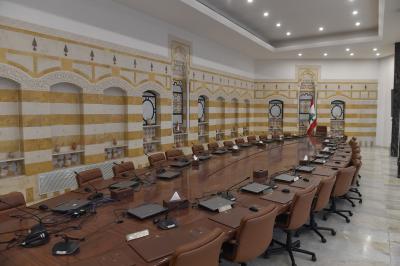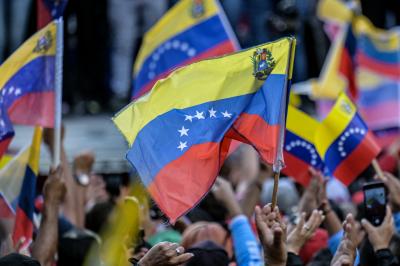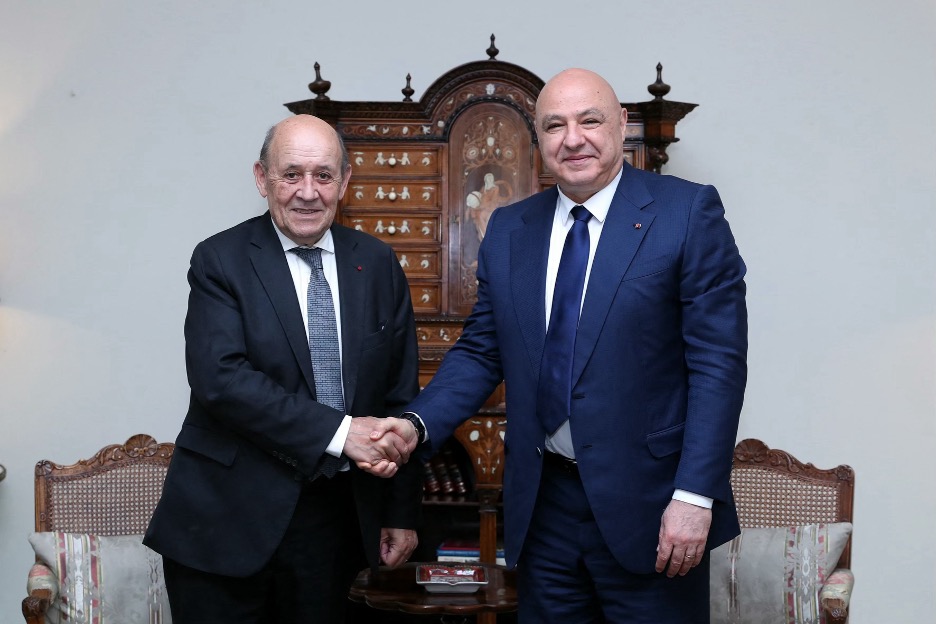Since the announcement of the visit by French presidential envoy Jean-Yves Le Drian, Lebanese officials had gathered limited knowledge of what his agenda entailed or what messages he might bring. The visit comes as part of France’s continued assertion of Lebanon’s importance and its support for the country’s political recovery, following a French role in accelerating the formation of both the presidency and the government.
France has consistently backed President Joseph Aoun since his election, and closely followed the government formation process, including cabinet portfolios and appointments, while maintaining friendly ties with "Hezbollah". The French ambassador has made regular visits to the southern suburbs of Beirut, and Ali Hamie, a former minister of "Hezbollah" who also holds French citizenship, now serves as a presidential advisor with an office in the Baabda Palace.
France is monitoring Lebanon, and Lebanon is monitoring the threats from Israel and the persistent U.S. pressure, whether over UNIFIL’s mandate or the reconstruction efforts. Within this context, France is attempting to carve out a role for itself. Yet its regional presence remains modest, lacking any real political weight. In Syria, it seeks to have a say in land and maritime border demarcation to secure a stake in oil exploration projects, and it is also interested in mediating a land border agreement between Lebanon and Israel to reactivate the oil operations of the French companies.
During his visit to Ain el-Tineh, Le Drian emphasized the importance of financial reforms as a prerequisite for the Lebanon support conference scheduled for this fall. His big stress on economic issues, while quickly skimming over matters like UNIFIL and Israeli aggression, surprised Speaker Nabih Berri and several MPs. It became clear that Le Drian's primary aim was to push for parliamentary approval of the needed financial reforms. There were also reports that France is attempting to convince the Central Bank Governor Karim Said to show flexibility in this regard.
In a striking contradiction, Le Drian was inquiring about reforms even as the European Union had just placed Lebanon on its blacklist for money laundering—something the French envoy neither addressed nor acknowledged.
Le Drian also made sure to visit "Hezbollah"’s stronghold and met with the head of the Loyalty to the Resistance bloc, Mohammad Raad. Additionally, he met with several party and parliamentary bloc leaders, as if to reinforce France’s claim of maintaining equal distance from all sides.
Yet none of those who met Le Drian left with a clear understanding of his mission, reinforcing the perception that his visit was purely exploratory, lacking any new initiative or fixed date for the upcoming support conference. However, given that France holds a signature role in the UN Security Council, its presence does contribute to ensuring UNIFIL’s mandate is renewed without changes to its mission or powers.
In the vacuum left by the United States, especially after Morgan Ortagus was relieved of her duties, Le Drian has re-emerged on the scene, reaffirming France’s reactive stance rather than a proactive one. While the pressing topics in Lebanon remain weapons and UNIFIL, France has not played a meaningful role in either. Instead, its envoy came to inquire about economic reforms, signaling a shift in French thinking—from political engagement to economic strategy.
It has also become evident that the French embassy, in collaboration with the Chamber of Commerce, has been organizing meetings with representatives of Lebanon’s economic sectors to assess future investment opportunities. This reflects France’s attempt to secure a foothold in anticipated investments in both Lebanon and Syria. Aware that it has now become a secondary player in regional security arrangements, France is seizing the temporary U.S. absence to boost its presence, slipping through the cracks left by Washington. This shift highlights an implicit acknowledgment of its limited political influence, which it now aims to compensate for through an economic approach spearheaded by Jean-Yves Le Drian, who was recently assigned in a new position in Saudi Arabia, allowing him to explore new investment opportunities for France in the region.
Please post your comments on:
[email protected]
 Politics
Politics

